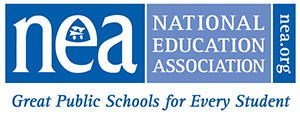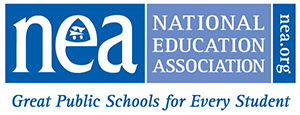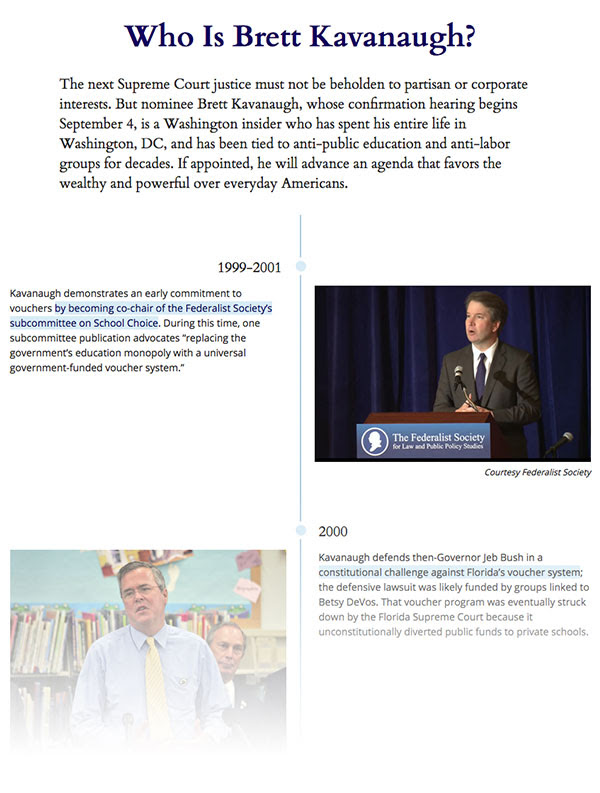It's not too late!
The National Alternative Education Association (NAEA) is partnering with the National Dropout Prevention Center (NDPC), to provide a professional learning opportunity at the 2018 National Dropout Prevention Conference, Constructing Possibilities: Blueprinting Whole Child Support, October 28-31, 2018.
With an entire strand of the event dedicated to Alternative Education contexts, NAEA will be providing special learning opportunities for alternative educators throughout the event. Participants will be able to experience all other activities offered at the conference.
For more information, click on the link below:
http://the-naea.org/2018-naea-
Hope to see you there!
Michael Hylen
Region 3 Director
With an entire strand of the event dedicated to Alternative Education contexts, NAEA will be providing special learning opportunities for alternative educators throughout the event. Participants will be able to experience all other activities offered at the conference.
For more information, click on the link below:
http://the-naea.org/2018-naea-
Hope to see you there!
Michael Hylen
Region 3 Director
 News Release News Release
Contact: Martin Ackley, Director of Public and Governmental Affairs, 517-241-4395
Bill DiSessa, Spokesperson, 517-335-6649
|
Michigan Teacher of the Year Program Accepting Nominations for 2019-20
September 7, 2018
LANSING –The search is on for the 2019-20 Michigan Teacher of the Year (MTOY).
The Michigan Department of Education (MDE) is asking educators, administrators, students, and parents to help it find the next MTOY to preside over a time-honored program, sponsored by the Meemic Foundation. The program recognizes outstanding educational leaders across Michigan for their work to elevate the teaching profession.
Michigan Teachers of the Year have been recognized since 1952. This exclusive Michigan Teacher of the Year honor is part of the preeminent state- and nationally-recognized teacher recognition program in states across the nation.
“Great teachers are found in every district and school in our state,” Interim State Superintendent Sheila Alles said. “We’re asking for your help by nominating our state’s best teachers for consideration as the next Michigan Teachers of the Year.”
MDE’s online nomination form is open until 11:59 p.m. October 12 for people to nominate a teacher or teachers whom they feel are exceptional educators and have made substantial contributions to their profession.
“The Michigan Teacher of the Year program is a tremendous opportunity for anyone who has seen the energy, creativity and dedication of a local teacher, elevated to state-wide honor and recognition,” said Pamela R. Harlin, director of the Meemic Foundation. “Meemic Insurance Company is proud to once again sponsor and be a part of this prestigious program that not only recognizes these exemplary performers and teacher leaders in Michigan education, but also empowers them to be a voice to represent and address issues facing their local region and the state.”
Each MTOY
- serves as spokesperson for all Michigan teachers;
- participates in monthly State Board of Education meetings;
- travels to state and national events involving Teachers of the Year from states across the nation;
- heads the Michigan Teacher Leadership Advisory Council (MTLAC), which is comprised of each year’s regional Michigan Teachers of the Year; and
- remains a full-time employee of their district while MTOY
MDE supports the MTOY program as a key element in advancing Goal 2 of Michigan’s plan to become a Top 10 education state in 10 years. This goal reflects MDE’s belief that strong leadership in our districts and schools includes teacher leadership, and that the MTOY and Regional Teachers of the Year serve as role models for what high-quality instruction looks like in Michigan’s schools.
Once nominations close on October 12, they are reviewed to ensure that each teacher meets eligibility requirements. Nominees then are sent Part A of the MTOY application. Part A consists of submitting a resume, letters of recommendation, and essay responses to several prompts to gain a better sense of who each applicant is as a teacher and their approach to education. Next, applications are scored by a group of education stakeholders, with the top scorers from each of 10 regions moving on to the next round: Part B of the application.
Part B focuses on education policy and is designed to gauge each applicant’s knowledge of policy at the state level and to reflect on what policies they would focus most on if named a Regional Teacher of the Year or the MTOY, and how they would go about achieving their desired outcomes to those policies. Applications are graded by a group of education stakeholders based on thoroughness of knowledge and their plans to achieve desired improvements.
The top scorer in each region is named that region’s Teacher of the Year and invited to interview with a different panel of state education stakeholders. From that group, the next MTOY is chosen.
Last year’s selection process began with more than 550 nominations and concluded with the naming of 10 regional Michigan Teachers of the Year, including 2018-19 MTOY Laura Chang of Sunset Lake Elementary in Vicksburg Community Schools.
Through financial support provided by the Meemic Foundation, each regional MTOY receives a sponsorship that helps offset the costs of attending MTLAC meetings and traveling throughout their region as they meet with members of their education community.
MDE and Meemic also work to offer opportunities for regional teachers of the year to engage with education stakeholders through the year and to provide professional development to their colleagues.
For more information about the MTOY program, please visit www.michigan.gov/mtoy or contact program coordinator Josh Roesner at roesnerj1@michigan.gov
# # #
| ||||||||||
| ||||||||||
| |||||||||||||
|
 News Release News Release
Contact: Martin Ackley, Director of Public and Governmental Affairs, 517-241-4395
Bill DiSessa, Spokesperson, 517-335-6649
|
Focus on Early Childhood, Literacy Begin
to Show Positive Results on M-STEP
August 29, 2018
LANSING – The state’s focus and investment into early childhood and early literacy programming over the past several years is beginning to show positive outcomes in statewide testing results, the Michigan Department of Education (MDE) said today.
Third and fourth grade scores on the English language arts M-STEP test showed modest gains this year; this represents one of the few highlights in this year’s results. Another highlight is an increase in the 11th grade Social Studies scores – from 46 percent proficient last year to 48.5 percent on this year’s Michigan Merit Exam (MME) this past spring.
“The third and fourth-graders in school today are the kids who are benefitting from the investments in early childhood education programs over the past several years,” said Interim State Superintendent Sheila Alles. “We want to thank Governor Snyder and state legislature for their persistent commitment to early childhood education that is beginning to bear fruit.
“These are the footholds we need in our ambitious efforts to make Michigan a Top 10 education state in 10 years.”
From a funding level of $108 million in 2012, the state steadily increased spending in the Great Start Readiness Program and has invested over $243 million there in each of the last four years. In addition to hefty investments in early childhood education, the state also is continuing its statewide collaborative efforts to improve literacy.
Three years ago, Michigan identified early literacy gaps as a focus area for policy and program support for learners, and established a set of initial support mechanisms to address the learning gaps. These programs have since been initiated with educators.
The programs, created and funded by the state legislature, support specific recommendations to ensure that all students have strong literacy skills to read by grade three. These include:
- Added instructional time grants that support districts in providing additional targeted supports for students who struggle in reading and other literacy skills;
- Literacy coaches at intermediate school districts (ISD) who provide direct assistance to school districts and public school academies to address instructional needs to help students;
- Assessment reimbursement grants to support districts in the use of screening and diagnostic tools to help identify specific student needs, so they can receive targeted support; and
- Professional learning funds to support the creation of a literacy coach network and resources for educators to learn and implement best practices to support all students – as well as students with specialized literacy learning needs, including English Learners, students with disabilities, and other students who may struggle to demonstrate these skills.
MDE also is in the process of distributing to school districts $20 million the state legislature appropriated for additional instructional time to pupils in grades K-3 who have been identified as needing additional supports and interventions in order to be reading at grade level by the end of third grade.
Several organizations are partnering with MDE to provide a consistent, coherent support infrastructure, so that all early literacy efforts are focused on the same needs. MDE and Michigan Association of Intermediate School Administrators (MAISA) teamed up with several literacy experts to form a task force to develop theEssential Instructional Practices for different learners, including K-3, early learners, and now adolescent and young adult learners.
These efforts have just begun to reach Michigan educators, students in child care settings, and classrooms throughout the state. As they become more fully implemented, more of Michigan’s children will have the literacy skills they need to succeed.
A goal of Michigan’s Action Plan for Literacy Excellence is to support educators of all students, including families, in literacy. MDE has defined the principles of family engagement and will use the principles to create a family engagement framework. Part of the family engagement workgroup’s strategy is to support families in understanding the Ready by Grade Three law.
“More work needs to be done on English language arts in the upper grades, and math and Social Studies overall,” Alles said. “State assessment results, when combined with classroom work, report cards, local district assessments, and other tools, offer a comprehensive view of student achievement.
To reduce testing time as required in state law, the M-STEP was adjusted in each grade level. Some grade levels saw minor adjustments, other grades like 5th and 8th grade ELA, saw a more significant adjustment in the removal of the ELA Performance Tasks, and introducing a new long constructed-response essay. The performance task was also removed from all grades of mathematics.
This year’s M-STEP results do not include statewide or school-level scores for the science tests given in grades 5, 8, and 11, due to a large-scale field test of the new science assessment system underway.
The adoption of Michigan’s new science standards in Fall 2015 created the need to replace past versions of Michigan’s M-STEP science assessment with a redesigned science system, aligned to the updated science content standards.
MDE’s Office of Educational Assessment and Accountability is well underway in the development of the new science assessment and conducted a large-scale field-test of new grade 5, 8, and 11 assessments this past spring.
While these new assessments continue to be computer-based, they do involve a variety of new item types and test designs that have not been used in past science assessments in Michigan. The purpose of the field test is to verify that the questions measure the updated content standards. Student proficiency is not calculated with field test assessments and individual results are not reported.
MDE has prepared a waiver request to the U.S. Department of Education that will allow Michigan to not double-test or report student scores for two years during the field testing period. This would alleviate the burden on students to do the required field testing of the new assessment and take an old assessment on the old standards for the mere purpose of having reportable scores. Student participation in the field test is required, however.
Local school districts will receive district-level aggregate results to get a general view of how their students performed on the science field test and is not intended to provide any indication of student proficiency.
The M-STEP testing was done during a seven-week window this spring. Preliminary results were available to school districts within 24-48 hours. Ninety-nine percent of schools and students are tested online, up from 80 percent in 2015.
Local school district and building M-STEP results are available at www.mischooldata.org. Downloadable data is available at www.michigan.gov/mstep.
English Language Arts Results 2015-18
| |||||||
Grade
|
Year
|
Not Proficient
|
Partially Proficient
|
Proficient
|
Advanced
|
Proficient or Above
| |
3
|
2015
|
24.1%
|
25.9%
|
25.3%
|
24.7%
|
50.0%
| |
2016
|
29.2%
|
24.8%
|
22.6%
|
23.4%
|
46.0%
| ||
2017
|
30.4%
|
25.5%
|
22.0%
|
22.1%
|
44.1%
| ||
2018
|
31.0%
|
24.6%
|
22.4%
|
22.0%
|
44.4%
| ||
4
|
2015
|
30.7%
|
22.7%
|
24.5%
|
22.1%
|
46.6%
| |
2016
|
31.4%
|
22.3%
|
22.2%
|
24.1%
|
46.3%
| ||
2017
|
34.8%
|
21.0%
|
22.0%
|
22.2%
|
44.2%
| ||
2018
|
33.9%
|
21.1%
|
21.5%
|
23.5%
|
45.0%
| ||
5
|
2015
|
27.4%
|
23.9%
|
32.2%
|
16.5%
|
48.7%
| |
2016
|
24.8%
|
24.6%
|
32.6%
|
18.0%
|
50.6%
| ||
2017
|
25.8%
|
23.1%
|
31.1%
|
20.0%
|
51.1%
| ||
2018
|
32.2%
|
21.3%
|
28.7%
|
17.8%
|
46.5%
| ||
6
|
2015
|
26.9%
|
28.4%
|
31.8%
|
12.9%
|
44.7%
| |
2016
|
28.0%
|
27.0%
|
29.1%
|
15.9%
|
45.0%
| ||
2017
|
29.5%
|
26.9%
|
28.9%
|
14.7%
|
43.6%
| ||
2018
|
31.4%
|
27.2%
|
28.2%
|
13.2%
|
41.4%
| ||
7
|
2015
|
24.7%
|
26.2%
|
36.7%
|
12.4%
|
49.1%
| |
2016
|
25.3%
|
27.6%
|
33.0%
|
14.1%
|
47.1%
| ||
2017
|
29.0%
|
26.2%
|
31.6%
|
13.2%
|
44.8%
| ||
2018
|
29.3%
|
27.3%
|
30.6%
|
12.8%
|
43.4%
| ||
8
|
2015
|
21.6%
|
30.8%
|
35.7%
|
11.9%
|
47.6%
| |
2016
|
23.2%
|
28.0%
|
33.9%
|
14.9%
|
48.8%
| ||
2017
|
23.4%
|
28.6%
|
34.9%
|
13.1%
|
48.0%
| ||
2018
|
30.0%
|
27.3%
|
31.1%
|
11.7%
|
42.8%
| ||
Mathematics Results 2015-18
| |||||||
Grade
|
Year
|
Not Proficient
|
Partially Proficient
|
Proficient
|
Advanced
|
Proficient or Above
| |
3
|
2015
|
23.5%
|
27.7%
|
31.1%
|
17.7%
|
48.8%
| |
2016
|
27.3%
|
27.5%
|
29.2%
|
16.0%
|
45.2%
| ||
2017
|
26.8%
|
26.4%
|
29.1%
|
17.7%
|
46.8%
| ||
2018
|
27.9%
|
26.4%
|
27.1%
|
18.6%
|
45.7%
| ||
4
|
2015
|
24.2%
|
34.4%
|
26.1%
|
15.2%
|
41.4%
| |
2016
|
21.3%
|
34.8%
|
26.9%
|
17.1%
|
44.0%
| ||
2017
|
24.6%
|
33.5%
|
25.8%
|
16.1%
|
42.0%
| ||
2018
|
24.8%
|
33.3%
|
25.6%
|
16.3%
|
42.0%
| ||
5
|
2015
|
35.9%
|
30.7%
|
17.8%
|
15.6%
|
33.4%
| |
2016
|
35.3%
|
30.9%
|
18.2%
|
15.6%
|
33.8%
| ||
2017
|
35.2%
|
29.8%
|
18.4%
|
16.6%
|
35.0%
| ||
2018
|
37.2%
|
28.5%
|
17.8%
|
16.6%
|
34.3%
| ||
6
|
2015
|
33.1%
|
33.7%
|
18.3%
|
15.0%
|
33.3%
| |
2016
|
34.2%
|
33.0%
|
18.2%
|
14.6%
|
32.8%
| ||
2017
|
33.4%
|
32.4%
|
18.8%
|
15.4%
|
34.2%
| ||
2018
|
34.5%
|
30.9%
|
18.6%
|
16.0%
|
34.6%
| ||
7
|
2015
|
35.0%
|
31.8%
|
19.9%
|
13.3%
|
33.3%
| |
2016
|
36.0%
|
28.7%
|
19.0%
|
16.3%
|
35.3%
| ||
2017
|
35.6%
|
28.2%
|
19.5%
|
16.7%
|
36.2%
| ||
2018
|
36.3%
|
28.0%
|
19.4%
|
16.3%
|
35.7%
| ||
8
|
2015
|
39.7%
|
28.1%
|
17.4%
|
14.8%
|
32.2%
| |
2016
|
40.6%
|
26.7%
|
16.6%
|
16.1%
|
32.7%
| ||
2017
|
39.9%
|
26.6%
|
16.4%
|
17.1%
|
33.5%
| ||
2018
|
41.0%
|
26.3%
|
14.9%
|
17.8%
|
32.7%
| ||
Science Results 2015-18
| |||||||
Grade
|
Year
|
Not Proficient
|
Partially Proficient
|
Proficient
|
Advanced
|
Proficient or Above
| |
4
|
2015
|
57.1%
|
30.5%
|
6.5%
|
5.8%
|
12.4%
| |
2016
|
54.7%
|
30.6%
|
7.3%
|
7.4%
|
14.7%
| ||
2017
|
54.9%
|
30.5%
|
7.5%
|
7.1%
|
14.6%
| ||
5
|
2018
|
Field Test
| |||||
7
|
2015
|
54.1%
|
23.3%
|
14.7%
|
8.0%
|
22.7%
| |
2016
|
52.3%
|
23.8%
|
14.7%
|
9.1%
|
23.8%
| ||
2017
|
53.0%
|
24.2%
|
14.2%
|
8.5%
|
22.7%
| ||
8
|
2018
|
Field Test
| |||||
11
|
2015
|
42.9%
|
27.7%
|
17.9%
|
11.5%
|
29.4%
| |
2016
|
38.5%
|
28.4%
|
20.4%
|
12.6%
|
33.0%
| ||
2017
|
39.9%
|
26.6%
|
20.8%
|
12.8%
|
33.6%
| ||
11
|
2018
|
Field Test
| |||||
Social Studies Results 2015-18
| |||||||
Grade
|
Year
|
Not Proficient
|
Partially Proficient
|
Proficient
|
Advanced
|
Proficient or Above
| |
5
|
2015
|
19.7%
|
58.1%
|
18.6%
|
3.6%
|
22.2%
| |
2016
|
21.1%
|
60.1%
|
16.1%
|
2.7%
|
18.9%
| ||
2017
|
24.2%
|
54.2%
|
19.2%
|
2.4%
|
21.6%
| ||
2018
|
22.3%
|
59.4%
|
15.7%
|
2.7%
|
18.3%
| ||
8
|
2015
|
30.4%
|
39.9%
|
25.3%
|
4.5%
|
29.7%
| |
2016
|
29.1%
|
41.5%
|
23.2%
|
6.1%
|
29.3%
| ||
2017
|
30.6%
|
38.0%
|
25.9%
|
5.5%
|
31.4%
| ||
2018
|
31%
|
39.8%
|
24.1%
|
5.20%
|
29.3%
| ||
11
|
2015
|
15.0%
|
41.1%
|
32.9%
|
10.9%
|
43.9%
| |
2016
|
11.3%
|
45.7%
|
32.5%
|
10.6%
|
43.1%
| ||
2017
|
11.7%
|
42.3%
|
33.4%
|
12.5%
|
46.0%
| ||
2018
|
11%
|
40.5%
|
36.9%
|
11.6%
|
48.5%
| ||
SPRING 2016-2018 GRADE 11 SAT WITH ESSAY RESULTS
| |||||||
Subject
|
Total Possible
|
2018 Total Score
|
2017 Total Score
|
2016 Total Score
|
2018 College & Career Readiness Score as defined by College Board
|
2017 College & Career Readiness Score as defined by College Board
|
2016 College & Career Readiness Score as defined by College Board
|
SAT with ESSAY
|
400-1600
|
1000.1
|
1007.6
|
1001.2
| |||
SAT Evidence-Based Reading and Writing
|
200-800
|
505.3
|
509.9
|
507.5
|
57.8
|
60.3
|
60.2
|
SAT Math
|
200-800
|
494.8
|
497.6
|
493.7
|
36.9
|
36.8
|
36.9
|
SAT with ESSAY
| |||||||
SAT ESSAY Scores
| |||||||
Reading
|
2-8
|
4.1
|
4.7
|
4.6
| |||
Analysis
|
2-8
|
3.4
|
3.5
|
3.5
| |||
Writing
|
2-8
|
4.7
|
4.6
|
4.5
| |||
# # #
| |||
|
|






No comments:
Post a Comment
Note: Only a member of this blog may post a comment.